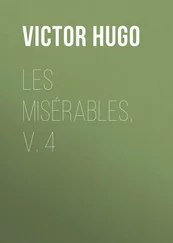Lascelles Wraxall - Les Misérables, v. 1
Здесь есть возможность читать онлайн «Lascelles Wraxall - Les Misérables, v. 1» — ознакомительный отрывок электронной книги совершенно бесплатно, а после прочтения отрывка купить полную версию. В некоторых случаях можно слушать аудио, скачать через торрент в формате fb2 и присутствует краткое содержание. Жанр: literature_19, foreign_antique, foreign_prose, на английском языке. Описание произведения, (предисловие) а так же отзывы посетителей доступны на портале библиотеки ЛибКат.
- Название:Les Misérables, v. 1
- Автор:
- Жанр:
- Год:неизвестен
- ISBN:нет данных
- Рейтинг книги:4 / 5. Голосов: 1
-
Избранное:Добавить в избранное
- Отзывы:
-
Ваша оценка:
- 80
- 1
- 2
- 3
- 4
- 5
Les Misérables, v. 1: краткое содержание, описание и аннотация
Предлагаем к чтению аннотацию, описание, краткое содержание или предисловие (зависит от того, что написал сам автор книги «Les Misérables, v. 1»). Если вы не нашли необходимую информацию о книге — напишите в комментариях, мы постараемся отыскать её.
Les Misérables, v. 1 — читать онлайн ознакомительный отрывок
Ниже представлен текст книги, разбитый по страницам. Система сохранения места последней прочитанной страницы, позволяет с удобством читать онлайн бесплатно книгу «Les Misérables, v. 1», без необходимости каждый раз заново искать на чём Вы остановились. Поставьте закладку, и сможете в любой момент перейти на страницу, на которой закончили чтение.
Интервал:
Закладка:
With time these impressions were attenuated, and perhaps effaced. Still it was noticed that from this period the Bishop avoided crossing the execution square.
M. Myriel might be called at any hour to the bedside of the sick and the dying. He was not ignorant that his greatest duty and greatest labor lay there. Widowed or orphaned families had no occasion to send for him, for he came of himself. He had the art of sitting down and holding his tongue for hours by the side of a man who had lost the wife he loved, or of a mother bereaved of her child. As he knew the time to be silent, he also knew the time to speak. What an admirable consoler he was! he did not try to efface grief by oblivion, but to aggrandize and dignify it by hope. He would say: "Take care of the way in which you turn to the dead. Do not think of that which perishes. Look fixedly, and you will perceive the living light of your beloved dead in heaven." He knew that belief is healthy, and he sought to counsel and calm the desperate man by pointing out to him the resigned man, and to transform the grief that gazes at a grave by showing it the grief that looks at a star.
CHAPTER V
MONSEIGNEUR'S CASSOCKS LAST TOO LONG
M. Myriel's domestic life was full of the same thoughts as his public life. To any one who could inspect it closely, the voluntary poverty in which the Bishop lived would have been a solemn and charming spectacle. Like all old men, and like most thinkers, he slept little, but that short sleep was deep. In the morning he remained in contemplation for an hour, and then read mass either at the cathedral or in his house. Mass over, he breakfasted on rye bread dipped in the milk of his own cows. Then he set to work.
A bishop is a very busy man. He must daily receive the secretary to the bishopric, who is generally a canon, and almost every day his grand vicars. He has congregations to control, permissions to grant, a whole ecclesiastical library to examine, in the shape of diocesan catechisms, books of hours, etc.; mandates to write, sermons to authorize, curés and mayors to reconcile, a clerical correspondence, an administrative correspondence, on one side the State, on the other the Holy See; in a word, a thousand tasks. The time which these thousand tasks, his offices, and his breviary left him, he gave first to the needy, the sick, and the afflicted; the time which the afflicted, the sick, and the needy left him he gave to work. Sometimes he hoed in his garden, at others he read and wrote. He had only one name for both sorts of labor, he called them gardening. "The mind is a garden," he would say.
Toward mid-day, when the weather was fine, he went out and walked in the country or the town, frequently entering the cottages. He could be seen walking alone in deep thought, looking down, leaning on his long cane, dressed in his violet wadded and warm great coat, with his violet stockings thrust into clumsy shoes, and wearing his flat hat, through each corner of which were passed three golden acorns as tassels. It was a festival wherever he appeared, it seemed as if his passing had something warming and luminous about it; old men and children came to the door to greet the Bishop as they did the sun. He blessed them and they blessed him, and his house was pointed out to anybody who was in want of anything. Now and then he stopped, spoke to the little boys and girls, and smiled on their mothers. He visited the poor so long as he had any money; when he had none he visited the rich. As he made his cassocks last a long time, and he did not wish the fact to be noticed, he never went into town save in his wadded violet coat. This was rather tiresome in summer.
On returning home he dined. The dinner resembled the breakfast. At half-past eight in the evening he supped with his sister, Madame Magloire standing behind them and waiting on them. Nothing could be more frugal than this meal; but if the Bishop had a curé to supper, Madame Magloire would take advantage of it to serve Monseigneur with some excellent fish from the lake, or famous game from the mountain. Every curé was the excuse for a good meal, and the Bishop held his tongue. On other occasions his repast only consisted of vegetables boiled in water and soup made with oil. Hence it was said in the town: "When the Bishop does not fare like a curé he fares like a trappist."
After supper he conversed for half an hour with Mlle. Baptistine and Madame Magloire; then he returned to his room and began writing again, either on loose leaves or on the margin of some folio. He was well read, and a bit of a savant , and has left five or six curious MSS. on theological subjects, among others a dissertation on the verse from Genesis, "In the beginning the Spirit of God moved upon the face of the waters." He compared this verse with three texts, – the Arabic, which says, "The winds of God breathed;" Flavius Josephus, who said, "A wind from on high fell upon the earth;" and lastly the Chaldaic of Onkelos, "A wind coming from God breathed on the face of the waters." In another dissertation he examines the works of Hugo, Bishop of Ptolemaïs, great-grand-uncle of him who writes this book, and he proves that to this bishop must be attributed the various opuscules published in the last century under the pseudonym of Barleycourt. At times, in the midst of his reading, no matter what book he held in his hands, he would suddenly fall into a deep meditation, from which he only emerged to write a few lines on the pages of the book. These lines have frequently no connection with the book that contains them. We have before us a note written by him on the margin of a quarto entitled, "Correspondence of Lord Germain with Generals Clinton and Cornwallis, and the Admirals of the American Station. Versailles, Prinçot; and Paris, Pissot, Quai des Augustins." Here is the note.
"O thou who art! Ecclesiastes calls you Omnipotence; the Maccabees call you Creator; the Epistle to the Ephesians calls you Liberty; Baruch calls you Immensity; the Psalms call you Wisdom and Truth; St. John calls you Light; the Book of Kings calls you Lord; Exodus calls you Providence; Leviticus, Holiness; Esdras, Justice; Creation calls you God; man calls you the Father; but Solomon calls you Mercy, and that is the fairest of all your names."
About nine o'clock the two females withdrew and went up to their bed-rooms on the first floor, leaving him alone till morning on the ground floor. Here it is necessary that we should give an exact idea of the Bishop's residence.
CHAPTER VI
BY WHOM THE HOUSE WAS GUARDED
The house the Bishop resided in consisted, as we have said, of a ground floor and one above it, three rooms on the ground, three bed-rooms on the first floor, and above them a store-room. Behind the house was a quarter of an acre of garden. The two females occupied the first floor, and the Bishop lodged below. The first room, which opened on the street, served him as dining-room, the second as bed-room, the third as oratory. You could not get out of the oratory without passing through the bed-room, or out of the bed-room without passing through the sitting-room. At the end of the oratory was a closed alcove with a bed, for any one who stayed the night, and the Bishop offered this bed to country curés whom business or the calls of their parish brought to D – .
The hospital surgery, a small building added to the house and built on a part of the garden, had been transformed into kitchen and cellar. There was also in the garden a stable, which had been the old hospital kitchen, and in which the Bishop kept two cows. Whatever the quantity of milk they yielded, he invariably sent one half every morning to the hospital patients. "I am paying my tithes," he was wont to say.
His room was rather spacious, and very difficult to heat in the cold weather. As wood is excessively dear at D – , he hit on the idea of partitioning off with planks a portion of the cow-house. Here he spent his evenings during the great frosts, and called it his "winter drawing-room." In this room, as in the dining-room, there was no other furniture but a square deal table and four straw chairs. The dining-room was also adorned with an old buffet stained to imitate rosewood. The Bishop had made the altar which decorated his oratory out of a similar buffet, suitably covered with white cloths and imitation lace. His rich penitents and the religious ladies of D – had often subscribed to pay for a handsome new altar for Monseigneur's oratory; each time he took the money and gave it to the poor. "The finest of all altars," he would say, "is the soul of an unhappy man who is consoled and thanks God."
Читать дальшеИнтервал:
Закладка:
Похожие книги на «Les Misérables, v. 1»
Представляем Вашему вниманию похожие книги на «Les Misérables, v. 1» списком для выбора. Мы отобрали схожую по названию и смыслу литературу в надежде предоставить читателям больше вариантов отыскать новые, интересные, ещё непрочитанные произведения.
Обсуждение, отзывы о книге «Les Misérables, v. 1» и просто собственные мнения читателей. Оставьте ваши комментарии, напишите, что Вы думаете о произведении, его смысле или главных героях. Укажите что конкретно понравилось, а что нет, и почему Вы так считаете.












